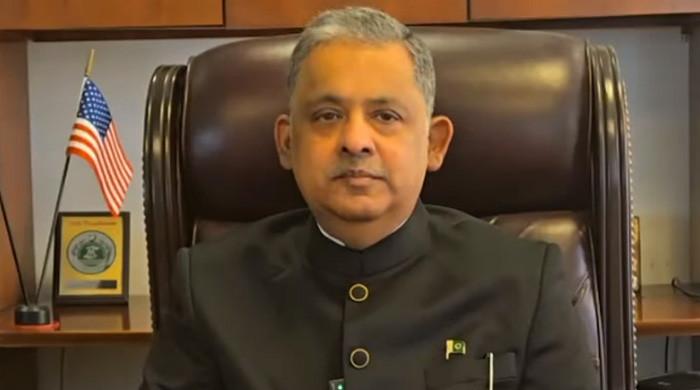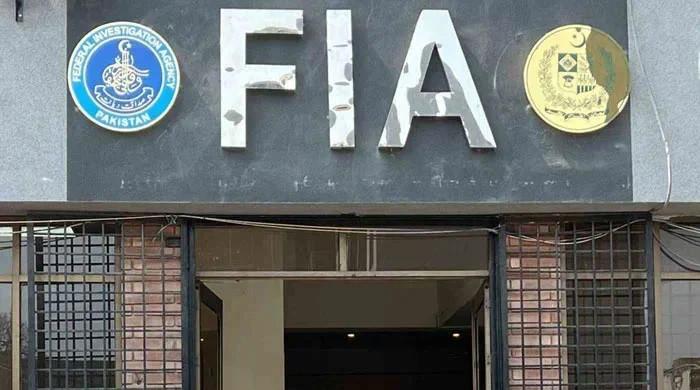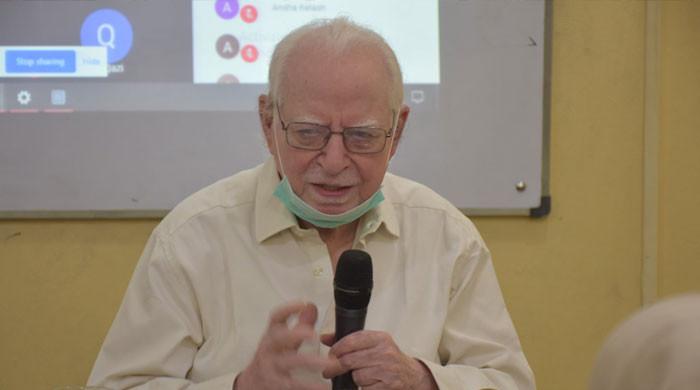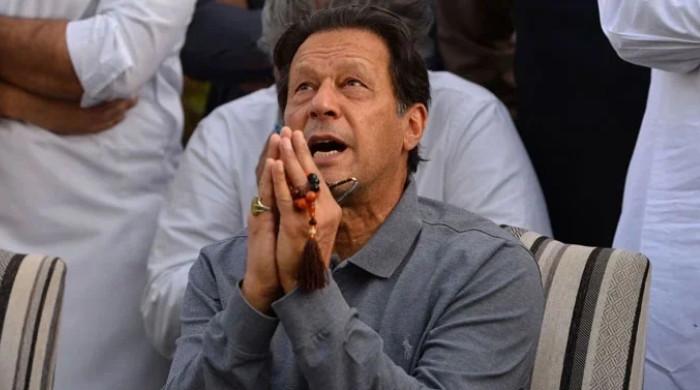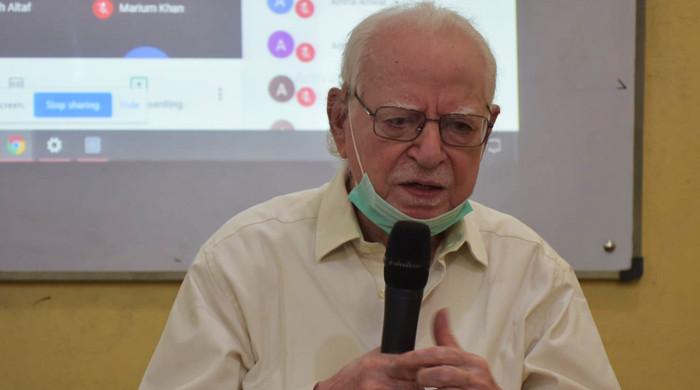Can the NAB legally arrest Hamza Shehbaz?
'Arresting Hamza is a violation of the LHC ruling'
April 06, 2019
A team of the National Accountability Bureau (NAB), tasked with probing cases of corruption, have again showed up with a warrant to arrest Hamza Shehbaz Sharif, the leader of the opposition in the Punjab assembly, from his home in Lahore.
The politician refuses to comply. He insists that the Bureau’s actions are a violation of court orders. The ruling he is referring to was issued in November by the Lahore High Court (LHC) after Hamza Shehbaz filed a bail petition against his possible arrests in three inquires NAB was conducting against him: Punjab Saaf Pani, Ramzan Sugar Mills and an asset beyond means case. The Court ordered that the anti-graft body will have to give a person a 10-day notice to approach a relevant court for bail, if warrants of arrests are issued.
But the NAB officials say that a recent Supreme Court order nullifies the order of the lower court. In March, the apex court ruled that NAB was under no compulsion, as per the laws that govern the Bureau, to inform a person prior to arrest.
So, who is right? Which court’s judgment is relevant to Hamza Shehbaz’s case?
“Arresting Hamza is a violation of the LHC ruling”
The Supreme Court judgment of March 19, holds that while arresting a person the NAB does not require permission from any court, if it has sufficient material available warranting the arrest. This order is general, and would not be relevant where there is a specific order to the contrary.
Furthermore, the Lahore High Court’s November order held that the NAB could only arrest Hamza Shehbaz after intimating him at least ten days prior to the arrest so that he can approach a concerned court.
It appears that the possible arrest of Shehbaz is capable of creating a few legal complications. Arresting him at this stage can be treated as a violation of the high court’s ruling, unless it can be proven that the said order was passed in a different inquiry of the Bureau. The last few lines of the order are not clear about this.
The NAB court Lahore just passed an Order dated 06.04.2019 whereby no specific direction has been given for the NAB authorities to arrest Shehbaz.
Hamza Shehbaz’s plea that he has also challenged the warrant before the high court can be viewed through the prism of Musa Gillani’s case where he was arrested after he filed his bail petition before the Supreme Court. The Court then directed the Anti-Narcotics Force to release him as the case stood filed.
Ahmed Pansota is an Advocate High Court practicing in Lahore.
“NAB has a far more persuasive argument”
The Supreme Court’s order shall supersede the Lahore High Court’s judgment, as it is later in time. The SC has specifically given an interpretation to the powers of the NAB and they’ve made it clear that the Bureau does not need to inform an individual prior to an arrest.
Here, the NAB has a far more persuasive argument.
Hamza Shehbaz will need to file another pre-arrest. His previous pre-arrest writ petition was disposed off. Till he does that, the apex court’s order will prevail.
Reza Ali is a barrister in Lahore.
“NAB should have sought a clarification from the court”
The rule of the thumb, legally, is that the decision of a higher court will superseded that of a lower court. However, in this case there seems to be confusion. The Supreme Court passed an overall general observation while the Lahore High Court passed a specific one. In this case there appears to be a dichotomy, the best course for the NAB would be to seek a clarification from the Lahore High Court.
Yasmeen Aftab Ali is a lawyer.




